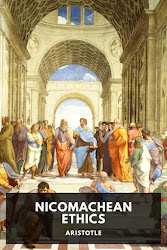There are two ways in which the ascension (spiritual liberation) argument typically occurs. The first is that humans were once grand or at least at a relatively decent level of peace and stability, but have fallen, and to ascend is to take our rightful place by being and acting in accordance with our designed nature (leaving aside the question of the designer). The other is that we act in alignment with the lowly state we are by nature, and ascension is rising above our lot. Gurdjieff sits in the second category, with the general purpose of human life being to act as an energetic resource for planetary forces in the same way as sheep and cows are resources for humanity; however, just as some animals may avoid capture for food and materials or death by another animal, an individual human may escape their bondage by separating psychologically from the herd.
Gurdjieff states that human beings are in a type of hypnosis, with the added suggestion that this is by design:
"It must be realized that the sleep in which we exist is not like ordinary sleep but is rather a kind of hypnosis, a hypnotic state that is continually maintained and enhanced…One would think that there were forces that derive some use or profit from keeping us in this hypnotic state and preventing us from seeing the truth…."
He then follows this point with an analogy comparing humans to sheep held in obedience by a magician so as not to run away from their slaughter; however, unlike sheep, humans as a collective are held in a psychological rather than a physical state of bondage. Yet this hypnosis is not unusual or limited to our epoch, but is the standard state of affairs, because if we collectively wake up to the reality of our existence we would cease being of use to those we serve.
The human element of the control structure, including the groups that operate the financial and political systems on Earth, does not play a role in the classic exposition of his work In Search of the Miraculous written by P. D. Ouspensky. This account of Gurdjieff’s teachings, from where the above quote derives, avoids analysis of the human power structures as its primary point is that cosmological forces control human destiny, including the lives of the wealthy and powerful. This is not to say that there is not a small group that hold the majority of assets, but this does not really matter because that group is also powerless and are simply puppets acting out scripts like the rest of us.
For Gurdjieff, the heavenly bodies such as Earth, Saturn and the moon are living, energetic entities that are evolving and use human energy for their own purposes; they are our natural rulers (and in some cases predators to use a biologically analogy) which manipulate us energetically via our psyche for their growth and development. Wars, mass catastrophic events, and any forms of intense social division and conflict facilitate the release of energy the moon feeds off. He tells us:
"The influence of the moon upon everything living manifests itself in all that happens on earth. The moon is the chief, or rather the nearest, the immediate, motive force of all that takes place in organic life on the earth. All movements, actions, and manifestations of people, animals, and plants depend upon the moon and are controlled by the moon…Man, like every other living being, cannot, in the ordinary conditions of life, tear himself free from the moon."
Life on Earth, to Gurdjieff's mind, evolves in relation to the needs of Earth and the moon. He describes how conscious lifeforms, such as humans, act as fine sensory devices which Earth uses for its interactions with other planets, and provide energetic sustenance for planetary forces, most significantly the moon. Gurdjieff notes that everything sets free a certain amount of energy at its death and this is attracted to the moon as through a huge electromagnet, bringing to it energetic sustenance required for its growth.
We see how plants consume air and water and are then eaten by animals who would not survive without plants; and animals are eaten by other types of animals (including humans). Yet we do not believe humans are food for a more powerful living entity: i.e. we provide no functional role in the advancement of life, but believe ourselves to be the apex of the food chain. Gurdjieff’s student and interpreter J. G. Bennett suggests the commonly accepted idea that humans do not serve such a purpose is hubris, and that the planets are clear examples of the large, and sophisticated forces that could take on this role: ‘it would be absurd to suppose that whereas all nature is connected through the transformations of energy, man alone should somehow stand outside this universal law.’ Yes, when we die our bodies are integrated back into life, but worms and soil could survive without our flesh, but humans and animals could not survive without plants, so according to standard thought, we have no essential purpose within the chain of life.
An interesting part of Gurdjieff’s theory is that humans often go into a collective psychosis, which is caused by planetary influences. It is such influences that lead to wars, revolutions and other large, civil disturbances:
"What is war? It is the result of planetary influences. Somewhere up there two or three planets have approached too near to each other; tension results. Have you noticed how, if a man passes quite close to you on a narrow pavement, you become all tense? The same tension takes place between planets. For them it lasts, perhaps, a second or two. But here, on the earth, people begin to slaughter one another, and they go on slaughtering maybe for several years. It seems to them at the time that they hate one another; or perhaps that they have to slaughter each other for some exalted purpose; or that they must defend somebody or something and that it is a very noble thing to do; or something else of the same kind. They fail to realize to what an extent they are mere pawns in the game."
A state of tension thus arises when there is an imbalance in the relations between the planets. The changes in the energetic balance throws humanity off kilter, which in turn leads to wars and other forms of collective madness, a state Gurdjieff calls “Solioonensius”. Gurdjieff points to the fact that in such periods humanity goes into a state of intense self-destruction, and begins to rip down society, including stabilising aspects that allowed it to reach a level we would call ‘civilisation’.
In these periods, humanity also loses its self-preservation instinct, as the ideas that take hold of individuals override the usual handbrake on collective suicide. He vividly describes this state of collective psychosis as involving the unconscious actions of large amounts of human “machines”, driven by external influences, blindly intent of slaughtering each other, regardless of the negative impact on themselves. Alternatively, some individuals use such periods to work on themselves to overcomes the widespread sense of dissatisfaction which harasses all, and develop their psychological insight and strength. Such periods are a period of harvest where the wheat is separated from the chaff.
Bennett notes that the two emotions that are uniquely human and which are heightened during such periods of wars and revolutions are hope and fear. These, he states, are deeply connected with the human understanding of life and death, and our knowledge that we are inevitably caught up in such a sequence. We know that things come to an end, and predict the birth of new events, all bringing unique waves of emotion. The moon thus creates situations on Earth where these emotions reach fever pitch, and use politicians, the media, religious groups, and revolutionary leaders for this purpose, although such groups may think they are in control of their actions and working towards noble goals, and are even willing to be martyred for the cause.
Gurdjieff’s fascinating view of the human condition was first presented to an eager group of Russians leading up to and during WW1 and the Communist Revolution. Clearly, during the revolutionary fervour within Russia during this period, and the outbreak of war in Europe, a view of this kind would have been more easily accepted than in America during the 1990s; and, writing in the year 2022, it begins to have an intuitive appeal once again. However, it is entirely possible that our energy is also food for beings that exist outside the visual bandwidth that we operate. There is a great deal of existence that surrounds us of which we have no real idea what is going on, and the suggestion that we are being fed on by forces outside of our visual spectrum opens one’s one mind to a new and eery way of considering the human life, but a way of thinking the majority of people living in our scientific, materialistic era will reject.
What Gurdjieff and Bennett point to is our arrogance, including the naïve belief that we have it all figured out, and have access to all levels of existence. It also reminds us of the powerful forces that surround us and the fragility of our rationality and our position in the cosmos. This is hard to accept for someone that takes pride in human advancement within the sciences and their own reason. Yet, if we are honest, we see chaos, dishonesty and madness in all directions. Perhaps the most foolish aspect of humanity is our inability to accept how weak and chaotic we truly are and that there are powers within the universe that influence us to do things we would rather not do. For a recent, scientific account this phenomena in practice, a book titled The Body Electric: Electromagnetism and the Foundation of Life outlines a series of investigations into how planetary influences impact human behaviour, including psychiatric disturbances, and is worth turning to for those wanting to pursue the topic in more depth.
Getting back to the original point of ascending from the matrix of control, Gurdjieff notes that liberation from our slavery entails systematically escaping the laws of the moon and other heavenly bodies, and working our way up towards a reality where less laws apply to us, many of which are unseen or unrecognised in everyday decision-making and action. The liberation we obtain from the control mechanisms within ourselves, such as compulsive thoughts and hateful emotions, is in fact liberation from cosmic influences that manifest within ourselves. It is in times when humanity is plunging into chaos and self-destruction that we are pushed to such a degree of discomfort that we make the great efforts required to obtain inner freedom, yet to do so we must first be aware of the trap set to prevent our flight.




